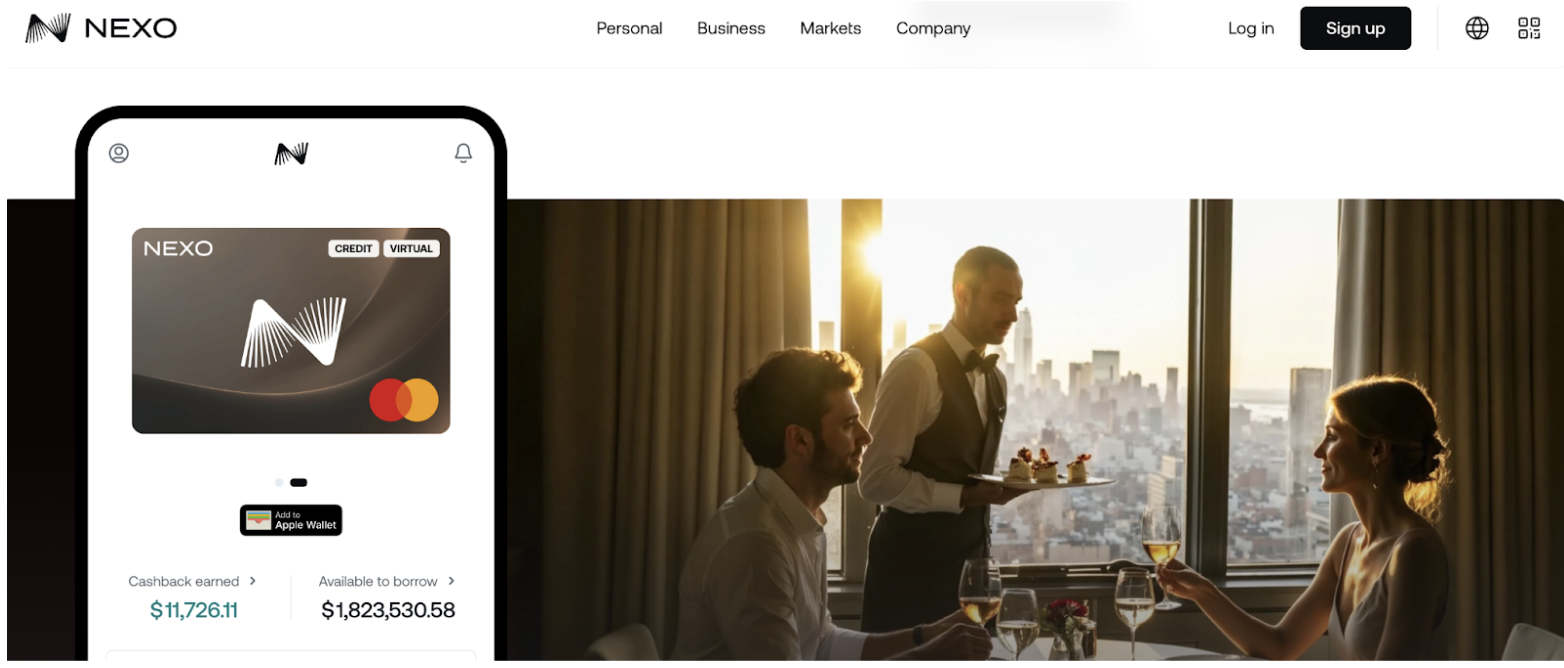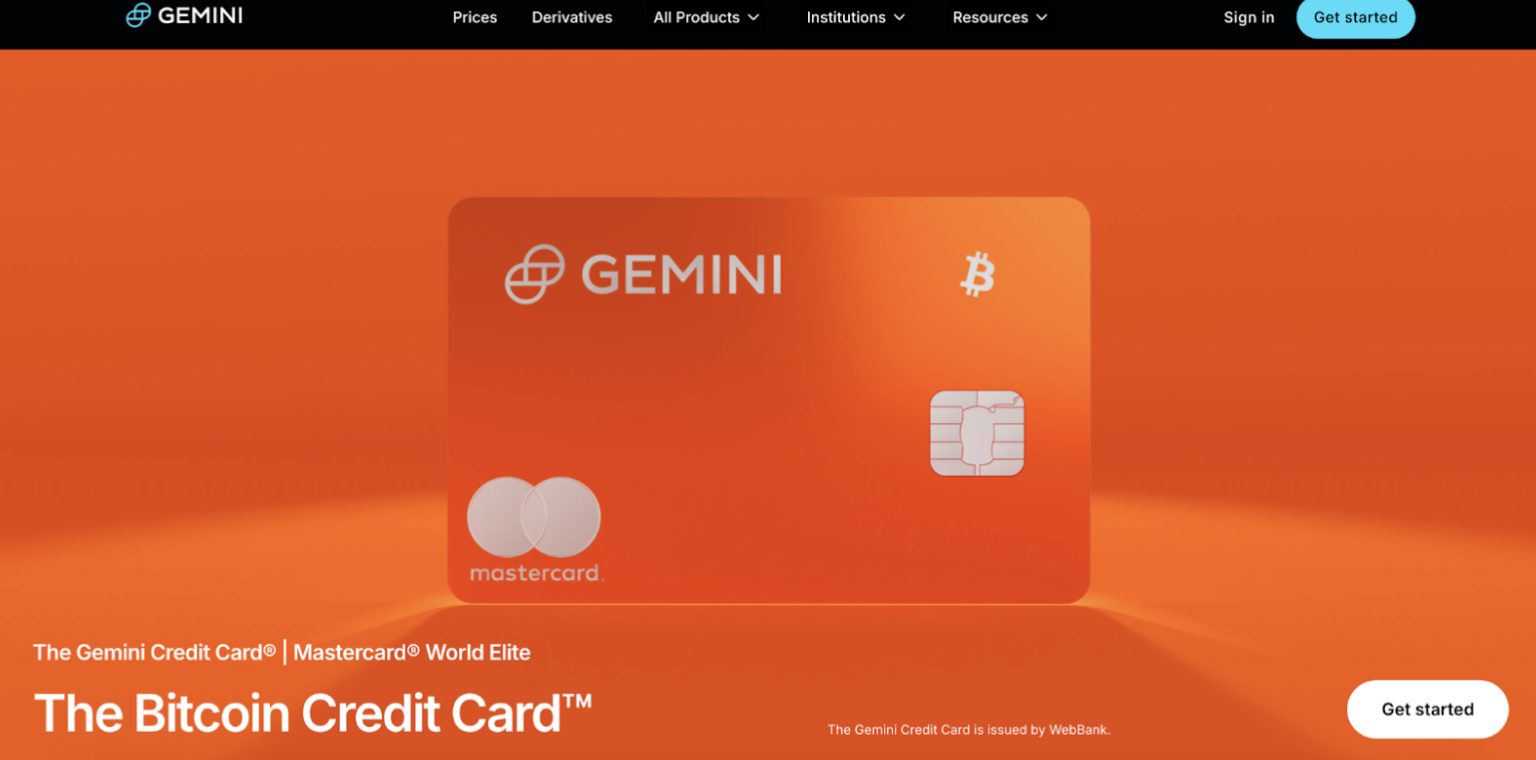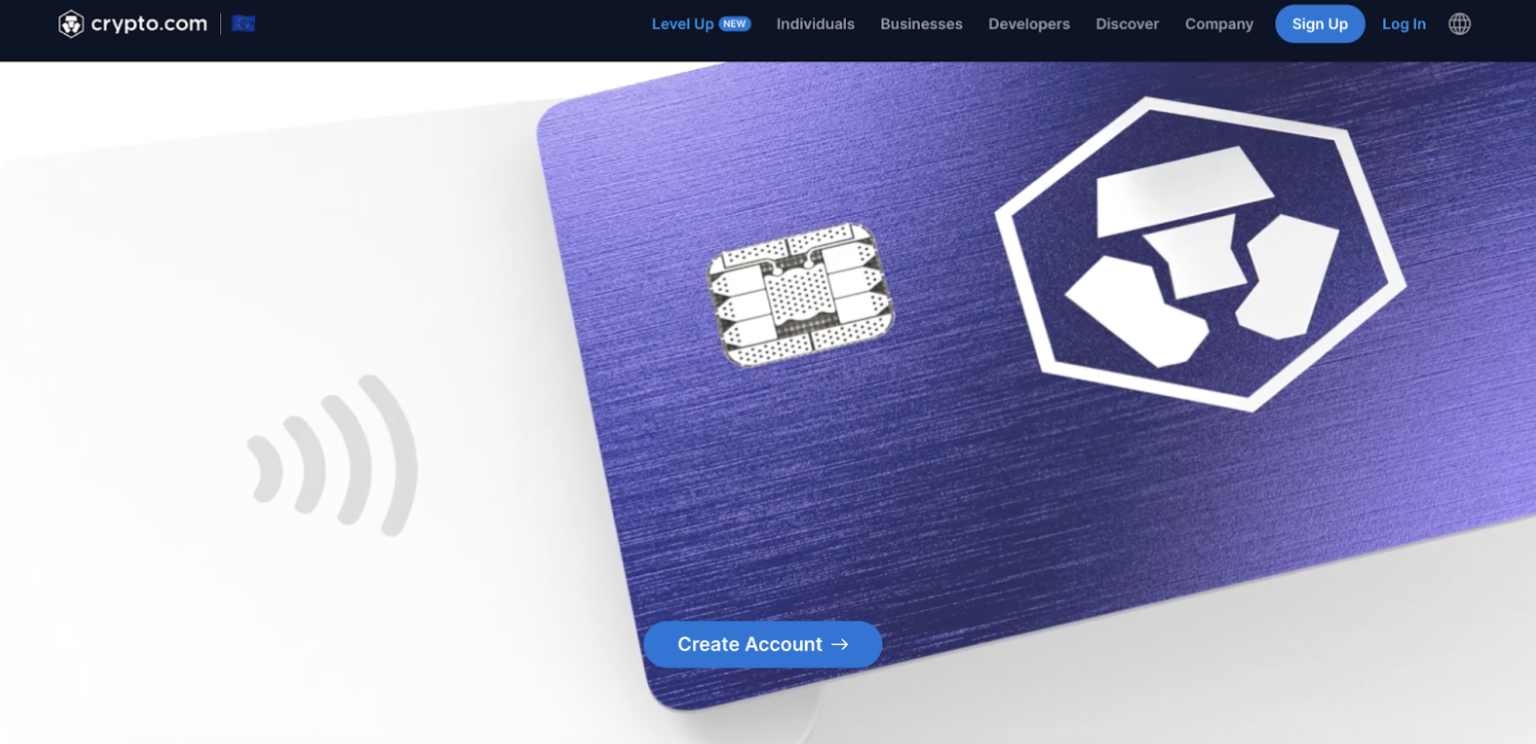Best Crypto Credit Cards in 2026: Spend Your Crypto Seamlessly
Written & Edited by
Dmitriy Maiorov

Editorial note: Some links in this article are affiliate links. We may earn a commission if you take action, at no extra cost to you. Our recommendations remain independent and unbiased.
👉 Learn more in our Advertiser Disclosure
Crypto credit cards are a popular choice between crypto enthusiasts. Such cards work similar to traditional credit cards but reward users in digital assets rather than ordinary cashback or travel miles. In this article, we will explore the best credit cards that pay in crypto and learn how they work in more detail.
When making our top picks, we have focused on the following criteria:
- Cashback amount
- Number of cryptocurrencies supported
- Fees and limits
- Availability
3 results found
Summary of the Best Crypto Cards
What Are Crypto Credit Cards and How Do They Work
Crypto credit cards are payment cards linked to cryptocurrency assets, allowing users to spend crypto with a credit card like traditional fiat (dollars, euros, etc.). They enable borrowing in crypto or fiat using digital assets as collateral.
Here is a list of things you need to know about how crypto credit cards work:
- The card connects to your cryptocurrency account (e.g., Nexo or Crypto.com).
- During a purchase, the cryptocurrency is automatically sold at the current exchange rate, and the payment is processed in fiat. For example, you buy a coffee for $5 → the equivalent amount in BTC or ETH is deducted from your account.
- Many offer crypto rewards or crypto cashback programs.
- Most operate via Visa crypto cards 2026 or Mastercard crypto reward cards, ensuring global acceptance.
Crypto credit cards bridge the gap between traditional finance and the crypto world, making it easy to spend digital assets in daily life. However, when choosing one, it is important to consider certain factors—which we will now examine.
How to Choose the Best Crypto Credit Card in 2026
Choosing a crypto credit card depends on your goals: whether you want to spend cryptocurrency, earn cashback, borrow against digital assets, or simply convert crypto to fiat conveniently. Here are the key selection criteria:
- Availability in your country
Before selecting a card, check if it operates in your region. Crypto.com supports most countries but with varying conditions. Some platforms, like Nexo, offer virtual cards that work anywhere Visa/Mastercard is accepted.
- Cashback and rewards
Cashback rates vary: Crypto.com offers up to 5% in CRO but requires staking their token. Nexo provides 2% for Platinum-tier users. Rewards often depend on status (e.g., the more crypto you lock, the higher the benefits).
- Fees
This is another critical factor when choosing a crypto card. Always check conversion fees, annual maintenance costs, and ATM withdrawal charges. High fees can ruin the experience.
- Limits and requirements
Cards have daily/monthly spending limits. Some require token staking for higher cashback—this may be unprofitable if the token’s price drops.
- Credit terms
If opting for a card with a credit line (like Nexo), clarify the interest rate, Loan-to-Value (LTV), and margin call risks.
Conclusion
By now, crypto credit cards have become easy-to-use financial tools that merge cryptocurrencies with everyday spending. In 2026, some possible choices include the Nexo Credit Card, Gemini Crypto Credit Card and Crypto.com Visa Card stand out as they offer competitive cashback, low fees and global accessibility.
To choose the best crypto credit card, focus on your needs and preferences. Also consider several factors like availability, fees and reward structures to maximize benefits. This will help you find the most suitable option and earn Bitcoin with credit card.
Frequently Asked Questions
Disclaimer
In line with the Trust Project guidelines, the educational content on this website is offered in good faith and for general information purposes only. BeInCrypto prioritizes providing high-quality information, taking the time to research and create informative content for readers. While partners may reward the company with commissions for placements in articles, these commissions do not influence the unbiased, honest, and helpful content creation process. Any action taken by the reader based on this information is strictly at their own risk. Please note that our Terms and Conditions, Privacy Policy, and Disclaimers have been updated.


